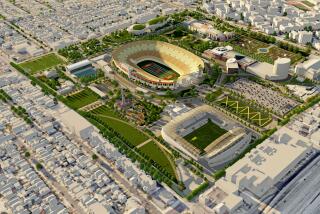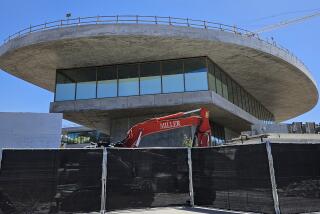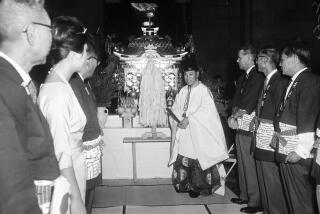Plans to reopen Costa Mesa’s Lions Park, aka ‘Airplane Park,’ take wing
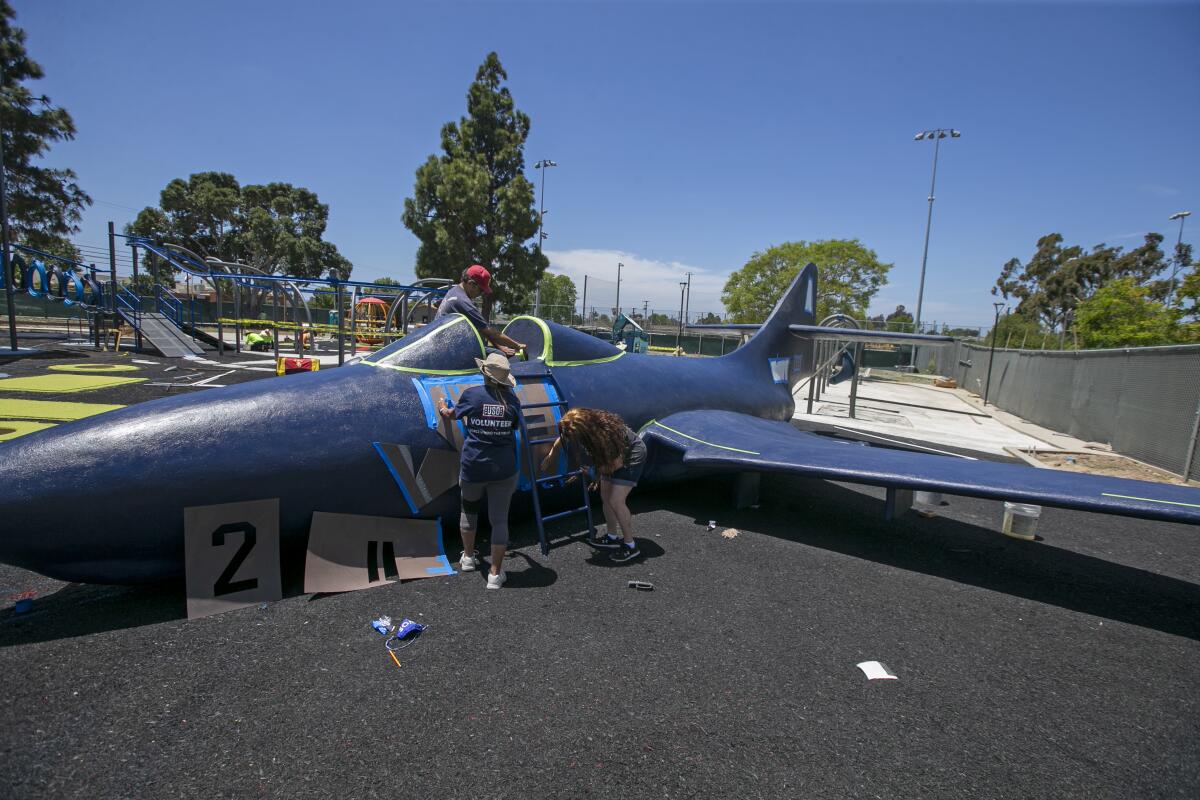
- Share via
Plans to reopen Costa Mesa’s Lions Park — referred to as “Airplane Park” by generations of locals but officially named for the beloved Harbor Mesa Lions Club fish fries held there — are taking wing in advance of an unveiling this summer.
The long-closed space is being outfitted with new play equipment, landscaping and irrigation, lighting, concrete pathways and restrooms. But a mainstay for 60 years, a Korean War-era Grumman F9F Panther jet, is staying put.
Several volunteers led by Costa Mesa Police Capt. Vic Bakkila convened last week at the fenced-off playground area to put the finishing touches on the aviation-themed attraction.
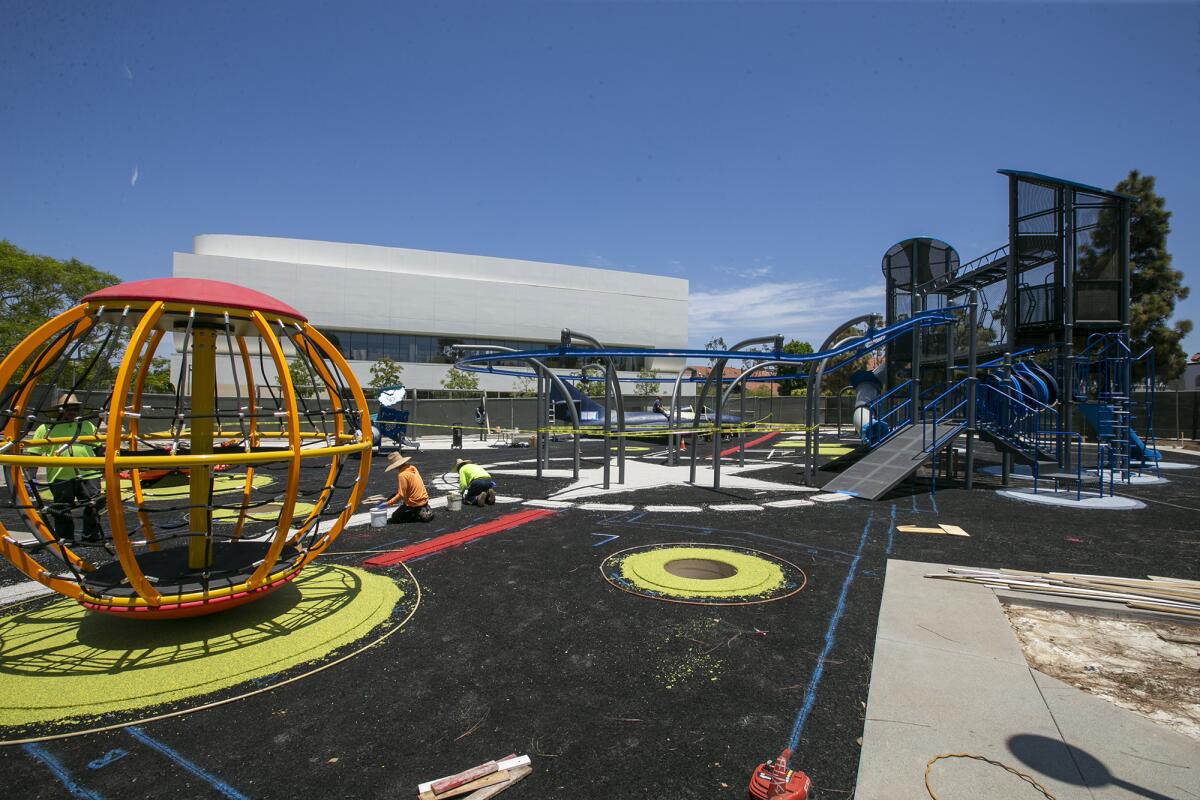
The jet was purchased decades ago for the bargain price of $1 by Ted Tanner, a local and retired U.S. Air Force lieutenant colonel who served in the South Pacific during World War II. It has since been coated with layers of concrete for safety purposes.
But before that, its dials, knobs and cockpit contraptions delighted generations of would-be pilots and adventurers, volunteer Cindy Brenneman said.
“The kids used to play on it when it was metal. It had all the gadgets,” Brenneman said, stenciling the word “Navy” in blue painter’s tape on the structure’s rear fuselage.
Bakkila said he also harbored fond memories of the old Panther.
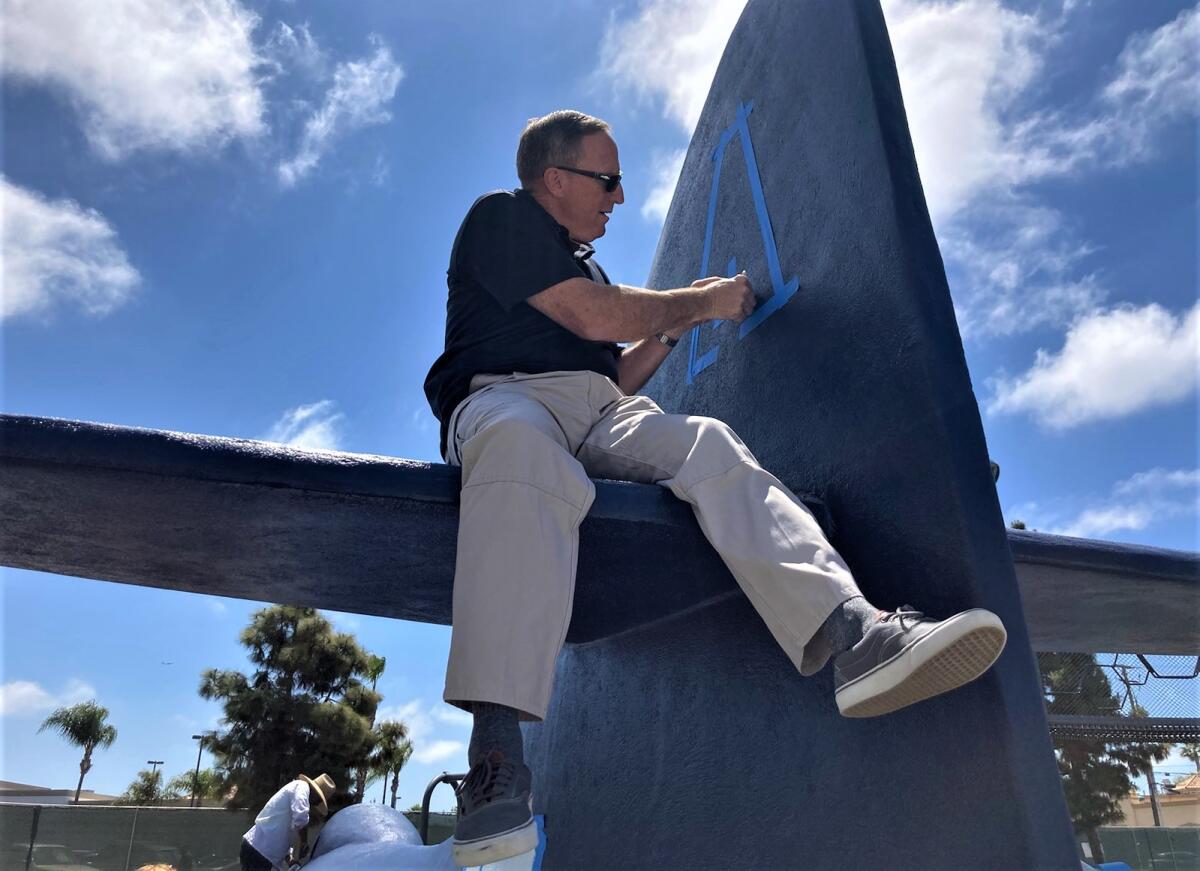
“I grew up in Irvine and would get to play on this if I was a good boy at the beach,” he said. “Everybody knows this plane.”
Pete Carolan, a retired Navy SEAL who in 1970 was tasked with retrieving astronauts from the failed Apollo 13 mission upon splashdown, dedicated a morning last week to painting the cockpit window and leading edges of the wings.
The first model airplane he assembled as a third-grader was an F9F Panther, he said. But whether modeling or painting concrete planes in city parks, Carolan approaches the task with a sense of reverence.
“You’ve got a jet here, and it represents the United States,” the veteran said. “So you want to make it look as prestigious as possible for people, especially going into Memorial Day.”
About five years has gone by since the concreted aircraft was last touched up. Early iterations of its paint job had been randomly applied (Bakkila recalled one unappealing shade of yellow), but more recently attention has been paid to sticking with historically accurate markings and tones.
Himself a lieutenant colonel in the U.S. Army Reserve, Bakkila attributes the shift to longtime Costa Mesan Al Bernstein, who worked on an aircraft carrier during his service in the Navy and remembered hauling those exact models across the high seas.
Now, volunteer painters work alongside an image of a real plane to ensure numbers and logos are appropriately placed. Sue Lester, who’s lived in the city for 11 years, said she sees the service as a way to honor the nation’s veterans and preserve history for future generations.
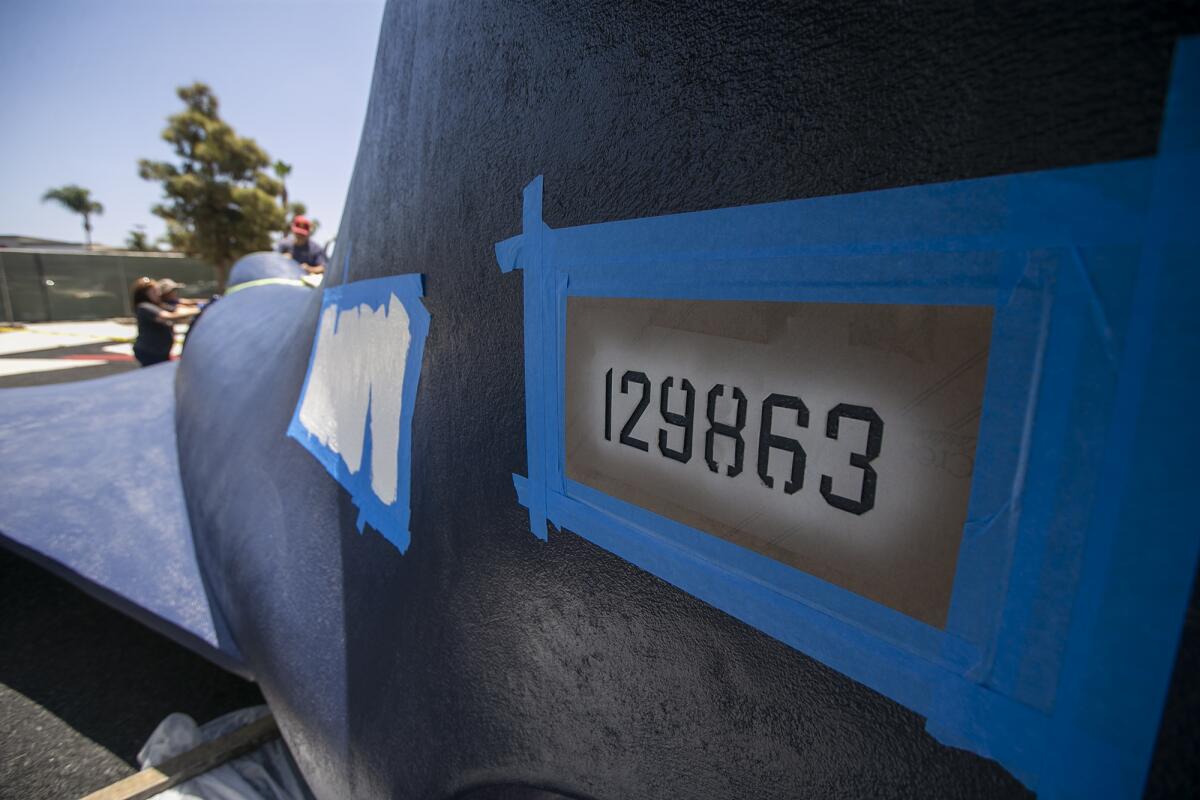
“Seeing things from the past gives us the opportunity to have conversations with people who are younger, and I like that,” Lester said, her paint roll loaded up with white paint. “If I can be part of helping preserve something like that, count me in.”
The Lions Park playground work was made possible by the dedication of $1.78 million from the Costa Mesa City Council in September. It’s one of many upgrades at the park in recent years.
In May 2019, the city celebrated the opening of the new 23,355-square-foot Donald Dungan Library, built on the site of the former Neighborhood Community Center.
A new community center, named after Norma Hertzog, the city’s first female City Council member and mayor, will be completed this year.
Both projects have been estimated to cost a total of $36.5 million. Originally slated for completion by spring 2020, the projects were delayed because of the COVID-19 pandemic.
Cardine writes for Times Community News.
More to Read
Sign up for Essential California
The most important California stories and recommendations in your inbox every morning.
You may occasionally receive promotional content from the Los Angeles Times.
